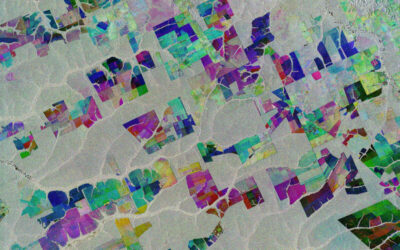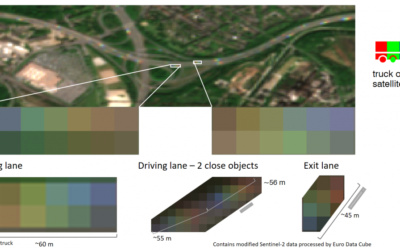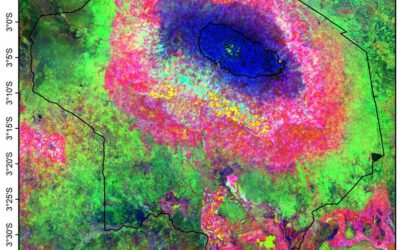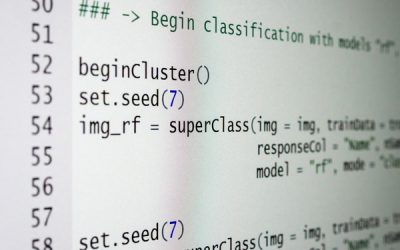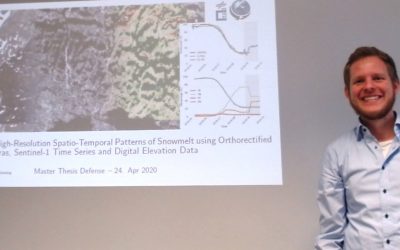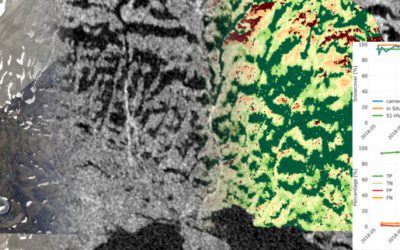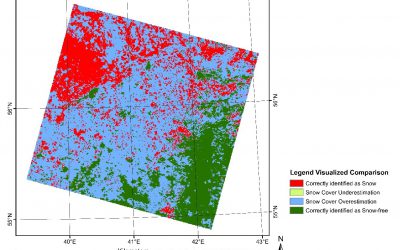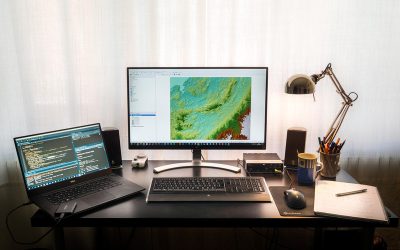Aim
Spectroscopy and hyperspectral remote sensing enables to retrieve very detailed spectral information about a certain surface in dense bandwith intervalls. Information on the “spectral fingerprints” of surfaces is then available in a near-continuous manner. This allows for the differentiation of materials, such different geologic surfaces, different urban materials, or plants of different composition and vigor. Especially field- and laboratory spectroscopy has shown many benefits, as measurements can be carried out in a controlled environment, and can be directly visualized and explained. This course provides you insights into practical experiments using a field spectrometer, and subsequent data analysis to assess key environmental parameters such as plant health, soil moisture content, and geologic composition.
Content
The content of this course includes both the theoretical background of field and imaging spectroscopy, as well as practical experiments and subsequent data analysis. In particular, we will adress: the theoretical background of field and imaging spectroscopy / general reflectance and transmittance properties of plant leaves, canopies and soils / the quantification of biophysical and biochemical properties using spectroscopic measurements, feature parametrization and regression analysis / the advantages and challenges of existing and planned hyperspectral spaceborne sensors
Coding
Software
Techniques
Content
General Course News and Updates
Internship presentations
On Thursday 30th at 10 am the following EAGLE students will present their internships or inno labs: Tobias Gutzmann: 'Aerial Image Analysis for WW2 Warfare Material Detection' at Luftbilddatenbank Henrik Fisser: 'Sentinel-2 Truck Detection - Sensing Trade from Space...
EAGLE student Henrik Fisser won ESA competition
Congratulations to Henrik Fisser, whose Sentinel-2 analysis on truck detection has been awarded the first prize for the European Data Cube COVID-19 contest! He uses the reflectance patterns of long moving vehicles in Sentinel-2 images. Please see the ESA webpage for...
MSc defense by Katrin Hasenbein
Katrin Hasenbein will defend her M.Sc. thesis on Thursday 12am on "The potential to enhance land use mapping by leveraging processing methods of time series data". from the abstract: "With the launch of the twin satellites of Sentinel-2 time series data with a high...
2020 applications
We received again a high number of very good applicants and are currently working through all application files. We will invite all eligible applicants in the next weeks for an interview. In total we received 137 eligible applications from the EU as well as North and...
MSc idea presentation by Aida Taghavi
Aida will present on Friday, May 22nd at 2:30pm her MSc idea "Potentials of Cosmic-Ray Neutron Probes for Assessing and Mapping SAR-based Soil Moisture in a Mediterranean agro-forestry ecosystem by developing an integrated ground- and space-based Modelling Framework"....
Sebastian Buchelt successfully presented his MSc thesis
Sebastian Buchelt successfully presented his MSc thesis - congratulations! Read more about his research project here.
MSc defense by Sebastian Buchelt
Sebastian Buchelt will present his M.Sc. thesis "Analysis of High-Resolution Spatio-Temporal Patterns of Snowmelt using Orthorectified Photo Cameras, Sentinel-1 Time Series and Digital Elevation Data" in a virtual course room. From the abstract: " Snow is one of the...
Successful virtual MSc defense by Silvan Steiner
Congratulation to Silvan Steiner, our first EAGLE passing with a virtual MSc defense!
MSc defense by Silvan Steiner
On Thursday at 10am Silvan Steiner will present his M.Sc. thesis "Assessing the Potential of a Land Cover Dependent Snow Cover Detection Algorithm for the Global SnowPack". Due to the Covid19 situation his defense will be in a virtual course room. Everybody is invited...
Covid-19 situation and EAGLE
The Covid-19 situation is also challenging for the University as well as the EAGLE program. Even though we are all in the process to adapt to this new situation, the program itself is continuing as usual. All courses, exams, MSc thesis defense and so on will take...

